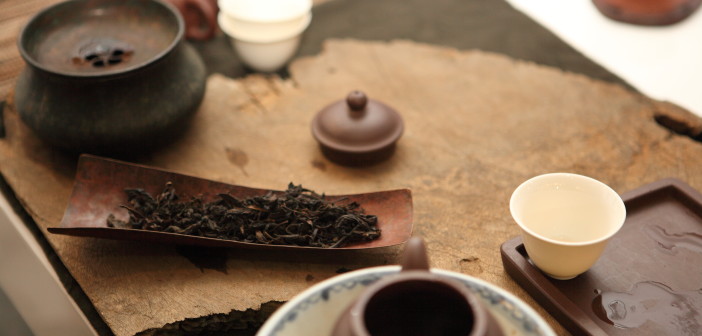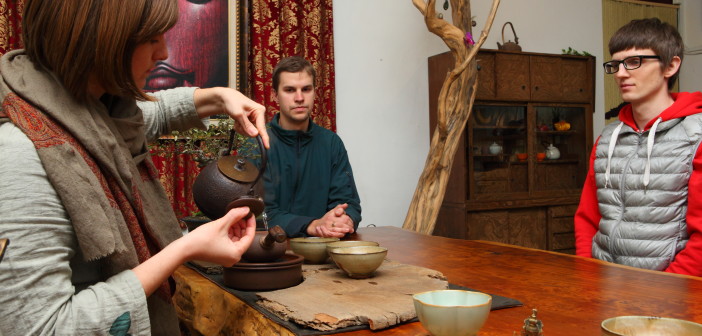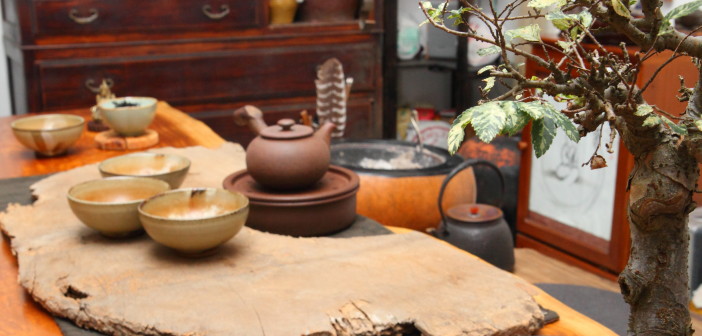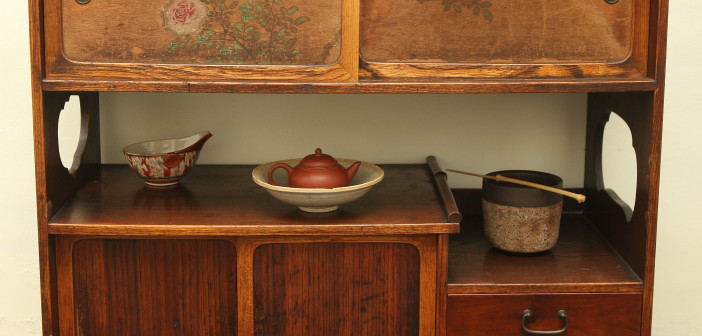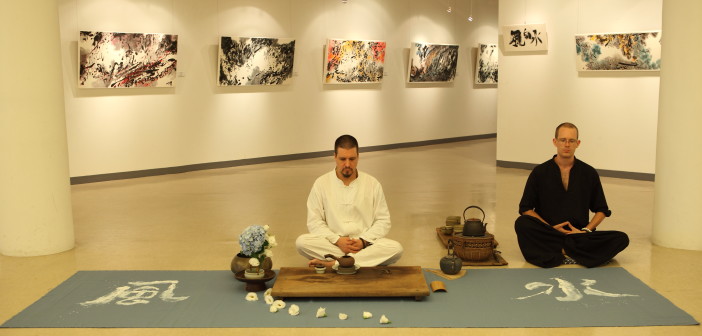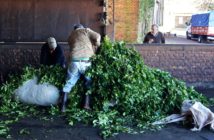At the Tea Sage Hut, tea is more than a beverage. It is a spiritual path that connects people to Nature. It nourishes Body, Mind, and Spirit. It brings people together, and tea enables them to serve each other. Putting a bowl of tea to the lips is the beginning of a spiritual journey. Students who enter don’t just learn about tea and how to make it, but how tea, meditation, and service can combine to generate personal development at this volunteer-run center in Taiwan.
An important first step in the journey involves arriving at the Tea Sage Hut, School of Tea and Dao, in downtown Miaoli City, Taiwan. The act of traveling to the Tea Sage Hut serves as a form of preparation for what can be a lifelong trek. If you want to fully arrive, it helps if every step of approach is intentional.
The path to reach the Tea Sage Hut varies for all. Some people get involved through The Global Tea Hut, a magazine and tea-sharing community that is a virtual population spread across many countries. Established in 2012, the Global Tea Hut initiative links the community with their shared love of tea, uniting patrons and members from around the world.
The tea trail also extends to a new phase of existence in the mountains and forests of Miaoli County, Taiwan. Contributions to the Global Tea Hut are used to expand the Tea Sage Hut into Light Meets Life, an expanded facility under development. This new location will include a tea cave in the future center. Like wines placed in a cellar, the cave will allow members of the community to store pu’er teas so that they can be aged properly. Three acres of verdant land in the mountains of Miaoli have already been donated to further the Light Meets Life project. Facilities at the remote location are currently under development.
In practical terms, the work of the Tea Sage Hut can be seen in several ways. That work includes creating time and space for beauty, enlightenment, and personal restoration. Guests engage in self-guided meditation. Some learn about growing, harvesting, and processing tea. Throughout their stay, guests also commune with each other and Nature while drinking good tea. Visitors at the Tea Sage Hut become fully immersed in a culture where Tea, Zen, Daoism, and other traditions align.
The Tea Sage Hut is currently based in facilities less than 2km from the Miaoli Train Station, on Yuqing Street in Miaoli City, Taiwan. In the true spirit of hospitality, visits to the Tea Sage Hut center are free. All the work of the Tea Sage Hut is funded through donations. Guests become part of the greater Tea Hut community, where a cup of tea is left on the altar as a reminder of distant community members present in spirit, and as a token to new guests arriving.
One of the founders of the Tea Sage Hut is Aaron Fisher, known to many as Wu De. Wu De has written and spoken across the globe on the wisdom of the Tea Way (Cha Dao). Wu De regularly travels to conduct workshops on tea in places like Siberia, Moscow, Los Angeles, and within Taiwan.
When asked why tea has spiritual associations, He replies, “There is no plant with a greater relationship to the history and consciousness of humankind.”He explains that tea can be a spiritual path because it is an entheogen, a term describing how a plant can be used to “generate the divine within.” Tea has been used for centuries by monks of Asia because its natural components support a state of focused alertness. Unlike psychoactive substances that have associated health risks, tea offers benefit to spirit, mind, and body.
Visitors to the Tea Sage Hut come away with a deeper appreciation of the Spirit of the Leaf. One visitor commented: “I have found that tea connects all. It provides a door to the divine temple within us, a place to find truth and wisdom and always a home[1].”
To arrange a visit to the Tea Sage Hut, contact: globalteahut@gmail.com.
[1] Skylar Rote, Feb 2013 Global Tea Hut Newsletter: http://www.scribd.com/doc/129415868/feb13elec

